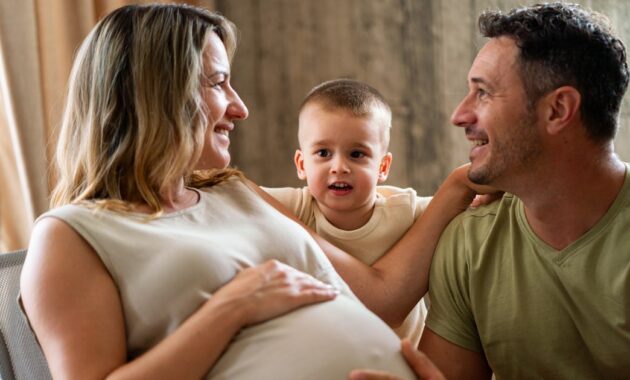There’s a good chance you’ve encountered a news article, politician, or tech-bro expressing concern about (or downright catastrophizing) declining birth rates. Donald Trump declared himself “the fertilization president” while issuing a (toothless) executive order seeking to expand IVF, and has floated the idea of a $5,000 “baby bonus.”
At a March for Life rally earlier this year, JD Vance proclaimed “I want more babies in the United States of America.”
Father of 14 Elon Musk has been vocal in his concerns about declining birth rates, tweeting “population collapse due to low birth rates is a much bigger risk to civilization than global warming.”
But according to a new survey from The Associated Press-NORC Center for Public Affairs Research, Americans do not share these concerns, and believe politicians should prioritize fixing other aspects of childrearing instead.
“Pronatalism” is a somewhat murky term. Strictly speaking it espouses the idea that there should be more births and babies among a given population. However, motivations for that wish vary considerably. For some, pronatalism is a blanket edict. For others, it is tied to sexist, racist, and eugenicist ideologies. Regardless of motivations, pronatalism has gained popularity among religious conservatives, the political right, and prominent figures within the tech industry.
Among everyday Americans across the political spectrum, however, population decline does not appear to be top of mind.
The AP-NORC survey of almost 1,200 people found that 28% of Americans thought declining birth rates are a “major problem,” just 1% more than those who didn’t think it was a problem at all. In light of these findings, it is perhaps not surprising that just 12% overall believe addressing the issue should be a “high priority” for the federal government.
While birth rate concerns were more pressing among Independents and Republicans than Democrats, with 42% of the former ranking it as a high or moderate priority, 62% overall ranked it a low priority for the Fed (69% of Democrats and 57% of Independents and Republicans).
Respondents, it turns out, were far more concerned about the cost of childcare (76% overall), the cost of IVF (41%) and health risks associated with childbirth (39%), though it should be noted that the exact breakdown varies considerably depending on respondent’s political and gender identities.
As far as the federal government’s role in addressing these issues, the survey indicated improving health outcomes for pregnant women, helping families pay for childcare, and helping parents who wish to leave the workforce should rank among the Fed’s top priorities.
Given the fact that the Department of Labor itself has categorized childcare in the U.S. as “an almost prohibitive expense,” ranging (on average) from $6,500 to nearly $16,000 per year per child; and that the U.S. has the worst maternal and infant mortality rates of any wealthy nation, this perhaps comes as no surprise. Perhaps it’s more efficient to serve and protect those children who have already been born than worry about the hypothetical babies no one is having. Maybe when people feel better about their child’s odds at surviving and thriving, they’ll be more inclined to have more.
Disclaimer: This content was automatically imported from a third-party source via RSS feed. The original source is: https://www.scarymommy.com/lifestyle/americans-not-concerned-about-declining-birth-rates-pronatalism. xn--babytilbehr-pgb.com does not claim ownership of this content. All rights remain with the original publisher.
